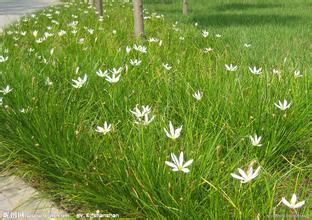Crystallization-Study of Jeremiah and Lamentations
Message Eight
God’s Economy
with His Dispensing
in the Book of Jeremiah
OPENING WORD
OF THE PROPHESYING MEETING
Reading the verses in each day.
Reading the main points in the outlines.
Pray-reading the verses:
Jer. 17:7-8 Blessed is the man who trusts in Jehovah and whose trust Jehovah is. And he will be like a tree transplanted beside water, which sends out its roots by a stream, and will not be afraid when heat comes; for its leaves remain flourishing, and it will not be anxious in the year of drought and will not cease to bear fruit.
Jer. 31:31-32 Indeed, days are coming, declares Jehovah, when I will make a new covenant with the house of Israel and with the house of Judah, not like the covenant which I made with their fathers in the day I took them by their hand to bring them out from the land of Egypt, My covenant which they broke, although I was their Husband, declares Jehovah.
Word of Appetizer
Why does the revelation in Jeremiah 17:5-8 include God’s economy with His dispensing?
The revelation here reveals that according to God’s economy, the one who trusts in God is like a tree transplanted beside water, signifying God as the fountain of living waters.
The tree grows beside water by absorbing all the riches of the water into it; this is a picture of God’s dispensing; in order to receive the divine dispensing, we as the trees must absorb God as the living water to be dispensed into our being in order to become our very constituent.
Spiritual Burden
The book of Jeremiah is an abstract of the entire Bible; Jeremiah’s prophecy indicates that only Christ can fulfill God’s economy and only Christ is the answer to God’s requirements in His economy; the picture portrayed by Jeremiah shows that we are nothing and that Christ is everything to us.
CONCLUDING WORD
OF THE PROPHESYING MEETING
The Revelation of the Truth
Jeremiah 17:7-8 can be understood in two different ways—according to the natural understanding or according to God’s economy; these verses are not concerned with a shallow matter of trusting in God to receive material blessings; actually, these verses refer to God’s economy carried out by His dispensing.
In Jeremiah 17:19-27 we have a word about keeping God’s Sabbath; the way to keep God’s Sabbath is to enjoy Him, to rest in Him, and to be satisfied in Him as the fountain of living waters.
The Experience of Life
Heb. 4:16 Let us therefore come forward with boldness to the throne of grace that we may receive mercy and find grace for timely help.
As the ascended One sitting on the throne in the heavens, Christ is now executing the new covenant, which He has bequeathed to us as a testament, interceding for us and ministering to us that we may realize, experience, and enjoy all the bequests contained in the new testament.
Practice and Application
In order to grow in life for the building up of the Body of Christ, we need to absorb God by taking root downward and bearing fruit upward; we need to have hidden times of fellowship with God; the empowering, enlightening, enjoying of rest, rejoicing, believing, solving of problems, overcoming of trials, temptations, and hardships, and comforting for a Christian all depend upon his secret fellowship with God through prayer and God’s word.
If we would receive the application of all the blessings in the new covenant, we need to be those who respond to Christ’s heavenly ministry.
We need to call on Him, to exercise our spirit; then we need to live according to our spirit, and then remain in our spirit.
PROPHESYING TOPICS—
TWELVE TOPICS PER WEEK
Day 1
T1: Blessed is the man who trusts in Jehovah (Jer. 17:7-8).
(Please illustrate that these verses can be understood in two different ways—according to the natural understanding or according to God’s economy.)
T2: The thought in Jeremiah 17:7-8 is the same as that in 1 Corinthians 3:6 (Jer. 17:7-8; 1 Cor. 3:6).
(Please illustrate that these verses refer to God’s economy carried out by His dispensing.)
Day 2
T1: The Sabbath signifies that God has done everything and that man must stop all his work (Jer. 17:21-22).
(Please explain the significance of keeping God’s Sabbath.)
T2: The way to keep God’s Sabbath is to enjoy Him, to rest in Him, and to be satisfied in Him as the fountain of living waters (Jer. 2:13).
(Taking the case of the Spirit’s coming upon the disciples on the day of Pentecost, please illustrate the way to work with God, the way to work in oneness with Him)
Day 3
T1: The Sabbath means that before we work for God, we need to enjoy God and be filled with Him (Acts 2:12-14).
(Why do we say that if we work in ourselves and by ourselves, that will be an insult to God?)
T2: The sign of the Sabbath (Exo. 31:13, 17).
(Please illustrate the fact that the sign of the Sabbath is that we rest with God, enjoy God, and are filled up with God first, and then we work with God.)
Day 4
T1: The book of Jeremiah is an abstract of the entire Bible (Jer. 31:31-34; Heb. 8:8-12; Matt. 26:26-29).
(Please illustrate that the new covenant was promised to Israel in Jeremiah 31:31-34, and that it was fulfilled by the Lord Jesus when He established His table.)
T2: The new covenant is Christ Himself (Isa. 42:6; 49:8).
(Please illustrate that Christ is the reality of the new testament.)
Day 5
T1: We need all the twenty-seven books of the New Testament to define this one short portion of Jeremiah 31:31-34 (Jer. 31:31-34).
(How to illustrate that Jeremiah laid the foundation of the new covenant In Jeremiah 31?)
T2: Christ is the surety of the covenant and the Executor of the testament (Heb. 8:6).
(Please illustrate that Christ is now in the heavens, living, divine, and capable.)
Day 6
T1: Christ’s ministry in heaven to execute the new covenant requires our response (Heb. 7:25; 4:16).
(Please illustrate that if we would receive the application of all the blessings in the new covenant, we need to be those who respond to Christ’s heavenly ministry.)
T2: We should not live in our own person; rather, we need to live according to the spirit and remain in our spirit (2 Tim. 4:22; Gal. 6:18; Rev. 1:10).
(Please illustrate that the Holy of Holies, God’s economy, and even the fulfillment of God’s economy are all related to our spirit.)



